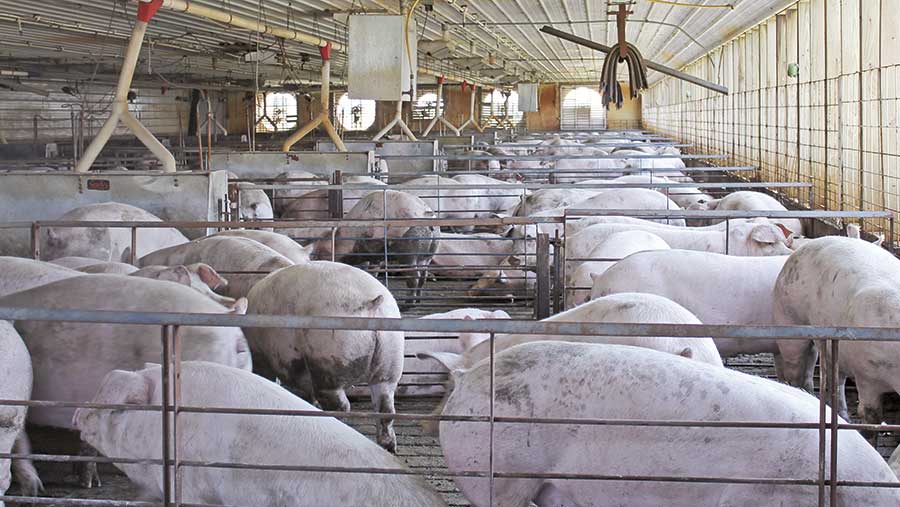China to exempt US pork and soybeans from additional trade war duties, in response to Trump’s tariff delay
South China Morning Post | 13 September 2019
China to exempt US pork and soybeans from additional trade war duties, in response to Trump’s tariff delay
by Zhou Xin
China has announced that it will exclude imports of US soybeans, pork and other farm goods from additional trade war tariffs, opening the door for significant purchases of agricultural products.
The official Xinhua News Agency reported on Friday that China’s National Development and Reform Commission and the Ministry of Commerce made the exemption in response to the US’ decision of postpone an increase in the tariff rate on $250 billion of Chinese goods from October 1 to October 15.
It comes after US President Donald Trump spoke on Thursday of the possibility of an “interim trade deal” over the coming weeks.
Beijing will allow Chinese businesses to purchase a “certain amount of farm products such as soybeans and pork” from the United States, according to the Xinhua report. “China’s market is big enough and there’s great potential to import high-quality US farm products.”
It added that Chinese authorities hoped that “the US will honour its word and fulfil its promises to create favourable conditions for cooperation for the two countries in the agriculture sector”.
Hua Changchun, an economist at Guotai Junan Securities, a brokerage, said Beijing’s move has increased the likelihood of a narrow trade deal.
“But it’s a small deal,” Hua said. “It means that there would be no escalation of tariffs as China has agreed to make more purchases. It could provide a certain level of comfort to US farmers and give Trump something to brag about.” It marks the latest in series of rapid-fire developments this week that suggest a concerted effort by China to push for a partial, or interim, trade deal.
It also comes just hours after Reuters reported that private buyers in China bought “at least 10 boatloads of US soybeans on Thursday”, the biggest mass purchase since June.
China’s Ministry of Commerce had not responded to a request for confirmation of exactly what the exemption would look like, with Friday being a public holiday in mainland China.
However, both pork and soybeans have been subject to heavy duties, imposed during successive rounds of Chinese tariffs on US goods.
China has levied three rounds of additional tariffs on US frozen pork, including 25 per cent in April 2018, 25 per cent in June 2019 and another 10 per cent in September 2019, bringing the final tariff to 72 per cent. If all the trade war tariffs were removed, the rate would return to 12 per cent, the “most favoured nations” duty paid by China’s other trading partners.
China has also imposed 30 per cent in tariffs on yellow soybeans – the sort the US grows in abundance – including 25 per cent in June and 5 per cent on September 1, bringing the current tariff level to 33 per cent. If the additional tariffs are removed, tariffs on US soybeans would return to 3 per cent – the same rate paid by importers of Brazilian soybeans, which have largely filled the gap left by the US.
Prospects for a trade deal between the world’s two biggest economies had already brightened after China and the US exchanged “goodwill” gestures ahead of a new round of trade talks scheduled in Washington next month.
Trump said on Thursday he preferred a broad deal, though he left open the possibility of a limited version when asked whether he would agree to an interim deal.
“A lot of people are talking about, and I see a lot of analysts are saying: an interim deal, meaning we’ll do pieces of it, the easy ones first,” Trump told reporters. “But there’s no easy or hard. There’s a deal or there’s not a deal. But it’s something we would consider, I guess.”
Trump’s comments came a day after he made a “goodwill” gesture of postponing the planned 5 percentage point increase in the tariff rate on $250 billion of Chinese goods to October 15 from the originally planned October 1, a big day for Beijing as it will be celebrating the 70th anniversary of the founding of the People’s Republic of China.
Earlier in the week, China had exempted 16 categories of US products – including medicines – from import tariffs.
Liu He, China’s lead trade negotiator and the top economic aide to President Xi Jinping, welcomed Trump’s postponement in a Thursday meeting with Evan Greenberg, president of the US-China Business Council, a lobby group.
Liu said working level trade meetings would take place next week to pave the way for the October meeting of top trade officials, who will focus on issues of “trade balance, market entry and investor protection”. This suggests the negotiations would be mainly about trade and investment issues instead of structural changes in Chinese economy or security.
“The whole world is expecting to see progress in China-US negotiations,” Liu said.
Shen Jianguang, chief economist at JD Digit and a veteran Chinese economy watcher, said neither side is in the mood for a further escalation of the trade dispute.
“The US could step back a bit on tariffs and China could offer to buy more US farm products,” Shen said. “However, it will still be difficult to reach a broad agreement over structural issues.”






